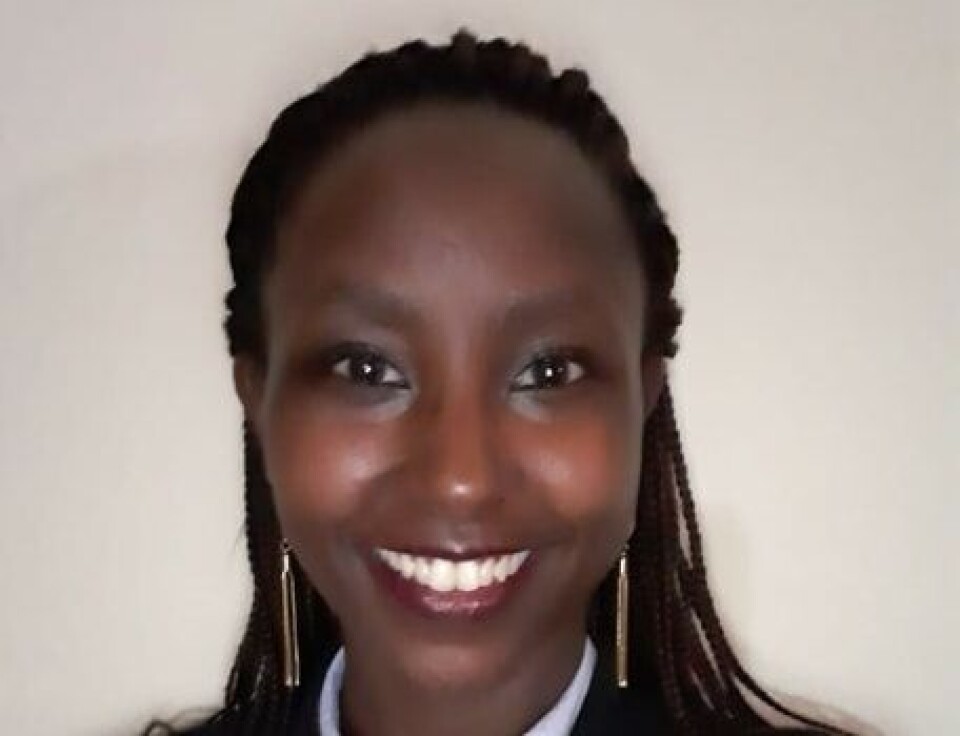Copyright : Re-publication of this article is authorised only in the following circumstances; the writer and Africa Legal are both recognised as the author and the website address www.africa-legal.com and original article link are back linked. Re-publication without both must be preauthorised by contacting editor@africa-legal.com
Fighting Fair

Sigi Waigumo Mwanzia is a Digital Policy Consultant with ARTICLE 19 Eastern Africa in Nairobi. She is also the young lawyer who took Kenya’s Council of Legal Education to court when it refused to recognise her British law degree. Judy Waguma reports.
ARTICLE 19 EA is a British non-governmental organisation focused on promoting freedom of expression and information. Mwanzia’s role is to provide digital expertise to its work on freedom of expression, human rights, digital law, policy and principles.
For the 26-year-old lawyer, who was recently named as one of Google’s Public Policy Fellows, and who is also completing her Advocates Training Programme, this success has been hard won. Before she could even start her career as a lawyer she was in court fighting a battle that influenced how regulations around qualifications from overseas universities in Kenya were interpreted.
Mwanzia did not undertake a career in law by accident - she was molded into it. As a little girl she spent time in the corridors of the Kenya Law Courts under the supervision of her mother, Mrs Alice Wangari Mwanzia, an advocate with Wangari Mwanzia & Associates Advocates. She is the middle child in a family of five siblings, one of whom is an advocate.
After graduating from Oshwal Academy Nairobi, in 2012, she left Kenya to study in England. “When I picked my course, I was sure I wanted to examine law within a wider context, and so I took a joint degree in law and politics at Cardiff University,” she says. For her postgraduate degree, she studied International Development at the University of Warwick. “I wanted to examine what role international human rights law plays within global development – I have a desire to understand how things merge,” she says.
In 2017 she returned home eager to start practising and went straight into an internship at Wangari Mwanzia & Associates Advocates as a legal Intern. While with the firm she decided to undertake the Advocates Training Programme at the Kenya School of Law.
However, what happened next was unexpected and documented under the Miscellaneous Civil Applications 163 of 2017: Republic v Council of Legal Education & 2 others Ex Parte Sigi Waigumo Mwanzia.
The Council of Legal Education in Kenya declined to recognise her degree despite her being in possession of an LLB degree from Cardiff University.
Armed with support from her parents and siblings, she took the matter to court - her debut into Kenya’s Legal system.
“We won! The issue lay solely on interpretation,” she says.
After she fought her case, she moved to Anjarwalla & Khanna as an intern in the commercial department. To meet the requirements to practise in Kenya, she enrolled at the Riara University where she completed 16 core units set out by the Legal Education Board (Quality Assurance and Accreditation) required prior to admission to the Advocates’ Training Programme.
“We exist in a world where law is supposed to aid in structural conflicts. My parents instilled this lesson in us - as well as the passion to always look for solutions where there are problems,” she says.
In December 2018, Mwanzia was made a Google Public Policy Fellow - a programme run across 15 countries in Europe, Middle East and Africa to encourage dialogue around public policy while providing young professionals with the opportunity to sharpen and hone their skills. “I remember thinking, if I get this, it will be a great stepping stone!”
At ARTICLE 19 EA, Mwanzia says she has worked on #MissingVoices, a campaign that seeks out platforms for more transparency and the right to appeal decisions that stifle the right to freedom of expression. She also works with partners to refine the new Kenya Data Protection Act signed into law in November 2019.
“I feel like I have found my home for now,” she says.
To join Africa Legal's mailing list please click here
